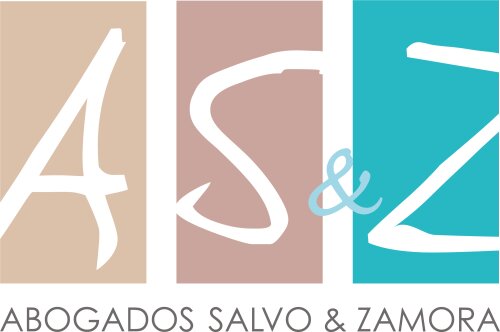Best Licensing Lawyers in Valparaíso
Share your needs with us, get contacted by law firms.
Free. Takes 2 min.
List of the best lawyers in Valparaíso, Chile
About Licensing Law in Valparaíso, Chile
Licensing in Valparaíso covers a broad set of regulatory permissions required to operate businesses, develop property, use public spaces, exploit coastal and port areas, provide professional services, or license intellectual property. Chilean licensing combines national laws and technical regulations with municipal rules and local plans. In Valparaíso you will deal with both national authorities and municipal offices, including the local Directorate of Municipal Works, the municipal revenue and patents office, regional health authorities, and environmental regulators. The process and requirements vary by activity - for example, opening a restaurant requires different permits than renovating a building or obtaining an environmental authorization for an industrial project.
Why You May Need a Lawyer
Many licensing matters are technical, administrative, and time-sensitive. A lawyer can help in several common situations:
- Starting a business or registering a new establishment - lawyers guide you through municipal patente requirements, initiation of tax activities, and corporate documentation.
- Applying for permits that require technical and legal coordination - for example, building permits, sanitary authorizations for food services, or environmental authorizations.
- Zoning and land-use conflicts - a lawyer can interpret the applicable Plan Regulador Comunal and challenge or seek variances if a specific use is not allowed.
- Licensing refusals or conditions - lawyers advise on administrative appeals and judicial review options, and prepare evidence and legal arguments.
- Complex regulated sectors - port operations, maritime concessions, alcohol sales, and health-related services often require specialized counsel.
- Negotiating and drafting licensing agreements - including intellectual property licenses, franchising contracts, or technology transfer agreements.
- Compliance and risk management - lawyers help set up processes to keep licenses valid, meet renewal deadlines, and respond to inspections or sanctions.
Local Laws Overview
When dealing with licensing in Valparaíso, you should pay attention to these key legal and regulatory frameworks:
- National legislation - laws and regulations on urban planning and construction, sanitary regulation, environmental protection, municipal taxation and administration, and sector-specific rules. The Ley General de Urbanismo y Construcciones governs building permits and urban standards. Environmental regulation establishes when projects must undergo environmental assessment.
- Municipal ordinances and requirements - each comuna has ordinances that affect commercial patents, use of public space, operating hours, noise limits, and local health or safety rules. The Municipalidad de Valparaíso issues commercial patents and local permits.
- Zoning and urban plans - Plan Regulador Comunal and related instruments determine allowable land uses, densities, and setbacks. These rules are essential for permitting and can restrict certain economic activities in defined zones.
- Health and safety rules - regional health authorities set sanitary requirements for food, lodging, and health services. Inspections and sanitary authorizations are mandatory for many activities.
- Environmental regulation - the national framework requires environmental assessment for projects that may have significant impacts. Local environmental permits and compliance monitoring may apply.
- Maritime and coastal rules - activities on or near the coast, or related to port operations, require authorizations under maritime and port regulations administered by national maritime authorities and local port administrations.
- Intellectual property law - national IP law governs licensing of trademarks, patents, and copyright. Licensing contracts must comply with contractual principles and IP statutory rules.
Frequently Asked Questions
What is the first step to open a business in Valparaíso that needs a municipal patente?
First, determine the exact activity and location. Check the Plan Regulador Comunal to confirm the use is allowed at the chosen address. Then register your business activity with the national tax service and apply at the municipal office for the commercial patente. Depending on the activity, you may also need sanitary authorization, building permits, or environmental clearances before the patente is issued.
How long does it take to get a typical municipal license or patente?
Timing varies by municipality and complexity. Simple patente renewals or straightforward new patentes can take a few days to several weeks. Activities requiring inspections, technical reports, or additional approvals - such as food service, construction, or environmental review - can add weeks or months. Delays are common if applications are incomplete or require corrections.
What permits are needed to open a restaurant or bar in Valparaíso?
Typical permits include a municipal commercial patente, a sanitary authorization from the regional health authority, a food handling certificate for responsible staff, and any required building permits or occupancy certificates if changes to the premises are made. If alcoholic beverages will be sold, additional municipal requirements or specific alcohol licenses may apply.
Do I need a lawyer to apply for a building permit or can I do it myself?
You can apply yourself for many permits, but most building permit processes require technical documents such as architectural plans and structural reports that must be prepared and signed by qualified professionals. A lawyer is helpful when legal issues arise - for example, zoning conflicts, variances, or challenges to permit denials. For larger or contentious projects, legal counsel is strongly recommended.
What if the municipality denies my license application?
If an application is denied, the municipality must provide a reason. You may be able to correct deficiencies and reapply or present additional documentation. There are administrative remedies - such as filing an administrative appeal - and, if necessary, lawyers can pursue judicial review in the appropriate courts. Time limits for appeals can be short, so seek advice promptly.
Are environmental permits required for small businesses?
Not always. Environmental evaluation requirements depend on the potential impact of the project. Small businesses with minimal environmental footprint may not need formal environmental permits, but activities with emissions, discharges, large waste streams, or significant land alteration may require environmental review or authorizations. A preliminary assessment can determine whether an environmental procedure is necessary.
Can I license intellectual property - like a trademark or software - while operating in Valparaíso?
Yes. Intellectual property licensing is governed by national IP law. You can license trademarks, patents, copyright, and software through written agreements that define scope, territory, royalties, duration, and quality standards. Using clear, enforceable contracts is important for protecting rights and avoiding disputes.
Who inspects compliance and enforces licensing rules?
Multiple authorities may inspect and enforce rules depending on the permit: municipal inspectors, regional health authorities, environmental agencies, port or maritime authorities for coastal activities, and national agencies for regulated sectors. Noncompliance can lead to fines, suspension of activity, or revocation of licenses.
How much do lawyers charge for licensing matters?
Fees vary widely based on the lawyer's experience, the complexity of the case, and the scope of work. Simple consultations or document reviews are usually billed at hourly or flat rates. Complex permit applications, appeals, or litigation can be more costly. Ask for a clear fee proposal and written engagement terms before hiring.
What documents should I bring to a first meeting with a licensing lawyer?
Bring identification, proof of business registration or RUT if you have it, copies of any communications or denials from authorities, technical plans or reports related to the activity, lease or property title documents, and any municipal or regulatory forms you have already completed. The more documentation you provide, the faster the lawyer can assess your situation.
Additional Resources
Below are types of local institutions and organizations that are commonly useful when dealing with licensing in Valparaíso - contact the relevant office in person or via their published channels to confirm specific requirements and procedures:
- Municipalidad de Valparaíso - municipal offices responsible for commercial patentes, municipal ordinances, municipal building reviews, and local inspections.
- Dirección de Obras Municipales - the municipal office that processes building permits, occupancy certificates, and related construction approvals.
- Secretaría Regional Ministerial de Salud - regional health authority for sanitary authorizations and inspections.
- Servicio de Evaluación Ambiental and regional environmental authorities - for environmental assessment procedures and requirements.
- Dirección General del Territorio Marítimo y de Marina Mercante and regional maritime authorities - for activities in port areas or on the coast.
- Servicio de Impuestos Internos - for tax registration and initiation of activities.
- Instituto Nacional de Propiedad Industrial - for trademark and industrial property registrations and guidance on licensing IP.
- Local professional associations and Colegio de Abogados - to find qualified lawyers with experience in administrative, commercial, environmental, construction, or IP law.
Next Steps
Follow these practical steps if you need legal assistance with licensing in Valparaíso:
- Identify the exact license or approval you need - list all permits that might apply to your activity or project.
- Gather basic documents - ID, business registration, lease or title, technical plans, previous correspondence with authorities.
- Do a preliminary check with the municipal office and relevant regulators to learn basic requirements and timelines.
- Consult a lawyer for a short intake or advice session - ask about experience in the specific licensing area, likely timelines, estimated costs, and potential obstacles.
- If you hire a lawyer, agree written engagement terms that specify services, fees, and communication expectations.
- Prepare for inspections and compliance - establish recordkeeping and a schedule for renewals or inspections to avoid lapses that could lead to fines or closure.
- If you receive a denial or sanction, contact a lawyer immediately - administrative remedies and judicial options often have strict time limits.
Getting professional advice early reduces delays and legal risk. Even when you can complete parts of the process yourself, a lawyer can help you navigate complex requirements, prepare strong applications, and respond effectively to regulators.
Lawzana helps you find the best lawyers and law firms in Valparaíso through a curated and pre-screened list of qualified legal professionals. Our platform offers rankings and detailed profiles of attorneys and law firms, allowing you to compare based on practice areas, including Licensing, experience, and client feedback.
Each profile includes a description of the firm's areas of practice, client reviews, team members and partners, year of establishment, spoken languages, office locations, contact information, social media presence, and any published articles or resources. Most firms on our platform speak English and are experienced in both local and international legal matters.
Get a quote from top-rated law firms in Valparaíso, Chile — quickly, securely, and without unnecessary hassle.
Disclaimer:
The information provided on this page is for general informational purposes only and does not constitute legal advice. While we strive to ensure the accuracy and relevance of the content, legal information may change over time, and interpretations of the law can vary. You should always consult with a qualified legal professional for advice specific to your situation.
We disclaim all liability for actions taken or not taken based on the content of this page. If you believe any information is incorrect or outdated, please contact us, and we will review and update it where appropriate.









